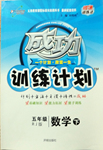题目内容
We all have dreams. Yet so few of us realize them. Often, a dream dies as quickly as it is born 1 we lack the confidence to keep it. When I was old enough, I realized that society puts a high 2 on youth, beauty and intellectual achievement. This discovery gave me some idea to 3 my dream.
I know beauty is something I will never have. But I didn’t see it as something 4 because it forced me to concentrate my energy to develop my 5 qualities. What people see in the handicapped(残疾)is only their 6 of being handicapped. People are not impressed with the ability that lies 7 every handicapped person.
My dream was 8 . I dreamed of becoming a typist. The employment field was a highly 9 place. It gave not only competition to a handicapped job – seeker but also the unfriendly treatment from the 10 strong and healthy. They see the handicapped as the back row of 11 .
However, I 12 to sit in the back row. I decided to take a course. When I handed application form to the interviewer, she looked at me and advised me to 13 my choice from typing. But I was 14 to stay with it. She accepted me.
On the fifth month of the six-month course, five students were chosen to do some copy typing. I was one of them. I was very 15 and finished half of the work given to us all. More work came to me after this test. I could see quite clearly the way to 16 my dream. I became a typist in one of the offices immediately after my graduation. I did not 17 starting at the bottom of the ladder. Being a 18 was just the beginning. Having achieved one dream, I set out to achieve others. There was no easy task. But the sacrifice proved 19 .
Dreamers should keep reaching out for their dreams, 20 what the pain, until they get what they want in life.
1.A.even if B.because C.although D.unless
2.A.standard B.view C.value D.measure
|
4.A.favorable B.unusual C.beneficial D.bad
5.A.other B.special C.unique D.outstanding
6.A.pain B.misfortune C.appearance D.sufferings
7.A.outside B.inside C.beyond D.beside
8.A.fantastic B.complicated C.acceptable D.simple
9.A.competitive B.valuable C.mysterious D.adventurous
10.A.originally B.extremely C.physically D.fortunately
11.A. seats B.society C.jobs D.community
12.A.had B.continued C.meant D.refused
13.A.change B.ignore C.confirm D.prevent
14.A.willing B.reluctant C.determined D.glad
15.A.happy B.efficient C.developing D.excited
16.A.achieving B.changing C.developing D.enjoying
17.A.avoid B.risk C.consider D.mind
18.A.officer B.ladder C.typist D.dreamer
19.A.disappointing B.rewarding C.encouraging D.satisfying
20.A.no sooner B.no wonder C.no longer D.no matter
1—5 BCADA
|

 教学练新同步练习系列答案
教学练新同步练习系列答案 课前课后同步练习系列答案
课前课后同步练习系列答案 课堂小作业系列答案
课堂小作业系列答案 黄冈小状元口算速算练习册系列答案
黄冈小状元口算速算练习册系列答案 成功训练计划系列答案
成功训练计划系列答案 倍速训练法直通中考考点系列答案
倍速训练法直通中考考点系列答案Different people use different languages. We Chinese speak Chinese, and, most of us are learning a foreign language. But there is another kind of language we need to know --- the language of the body.
All over the world, people “talk with their hand, with their heads and with their eyes.” When Japanese people meet, they bow. When Indians meet, they put their hands together. What do American and British do? Americans are more imformal(不拘小节的) than the British. They like to be friendly. They use first names, they ask questions and they talk easily about themselves. When they sit down, they like to relax in their chairs and make themselves comfortable. British people are more reserved(保守的). They take more time to make friends. They like to know you before they ask your name.
When British or American people meet someone for the first time, they shake hands. They do not usually shake hands with people they know well. Women sometimes kiss their women friends, and men kiss women friends (on one cheek only). When a man meets a man, he just smiles, and says, “Hello.” Men do not kiss each other, or hold hands. Even fathers and sons do not often kiss each other.
【小题1】In the passsage, the writer thinks that body language is ______________.
| A.uselss | B.difficult | C.quite easy | D.important |
| A.different countries hav the same body language. |
| B.different countries have different body anguages. |
| C.people in Asia share the same body language. |
| D.many people only use their body language. |
| A.sit straight | B.never sits down | C.makes fun of you | D.sits freely |
| A.imopssible | B.too easy | C.too difficult | D.slow |
| A.men | B.women | C.British | D.Americans |
| 完形填空。 | |||
| True forgiveness is one of the most remarkable qualities a human can possess! In the fighting between two countries in the 1970s, a young man was walking from one village to the next when he was 1 by an armed guerrilla (游击队) fighter from the enemy country. The fighter 2 the young man down the hill where he was to be 3 . But a (n) 4 thing happened. The young man, who had 5 military (军事的) training, was able to disarm (解除武装) the fighter. Now, the table was 6 , and it was the fighter who was ordered down the hill. As they walked, 7 , the young man began to reflect on what was happening. Recalling the 8 of his mother, "Love your enemies; do good to those who 9 you." he found he could go no further. He 10 the gun into the bushes, told the fighter he was 11 to go and turned back 12 the hill. Minutes later, he heard footsteps 13 behind him as he walked. "Is this the end after all?" he 14 . Perhaps the fighter had got the gun and wanted to finish him off. But he continued on, 15 glancing back, until his enemy reached him, only to grab him in a hug and pour out 16 for sparing his life. Mercy often wears the face of 17 . And though it usually isn't an enemy in uniform that we are challenged to forgive, we hav 18 for mercy every day. Family members and friends, co-workers and neighbors and even strangers have 19 for our forgiveness. You know who they are. As Mahatma Gandhi said, "The 20 can never forgive. Forgiveness is the attribute (特性) of the strong." Be strong. Forgive. | |||
| ( )1. A. shot ( )2. A. demanded ( )3. A. beaten ( )4. A. amazing ( )5. A. watched ( )6. A. turned ( )7. A. thus ( )8. A. expressions ( )9. A. forgive ( )10. A. packed ( )11. A. free ( )12. A. for ( )13. A. showing ( )14. A. shouted ( )15. A. seldom ( )16. A. marks ( )17. A. awareness ( )18. A. opportunities ( )19. A. need ( )20. A. lonely |
B. murdered B. reminded B. shot B. frightening B. received B. covered B. indeed B. plans B. hate B. dragged B. slow B. into B. waving B. counted B. never B. favors B. kindness B. explanations B. responsibility B. weak |
C. killed C. ordered C. accepted C. inspiring C. accepted C. moved C. therefore C. words C. instruct C. forced C. nervous C. up C. running C. wondered C. always C. thanks C. safeness C. hopes C. patience C. healthy |
D. caught D. required D. driven D. confusing D. suggested D. repaired D. however D. signals D. help D. threw D. eager D. down D. jumping D. argued D. sometimes D. reasons D. forgiveness D. lessons D. energy D. calm |